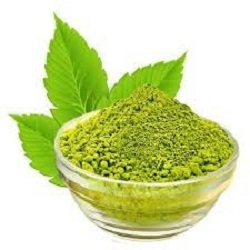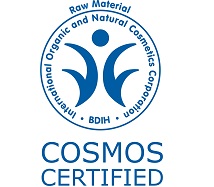

Organic Tulsi Extract
Tulsi is also known as Holy Basil, Its scientific name is Ocimum Sanctum. It is considered holy by many religions, the Tulsi plant is known for its divine properties. Tulsi is undoubtedly one of the best medicinal herb that has been discovered. It includes oral care, relief from respiratory disorders, treatment for fever, asthma, lungs, heart diseases, common cold, influenza, diabetes, earache, headache, stomach upset, fever, viral hepatitis, malaria, stress, and tuberculosis.
Tulsi extract is a traditional anti-fertility agent and libido enhancer in Ayurveda. It is also used for mercury poisoning, to promote longevity, as a mosquito repellent, and to counteract snake and scorpion bites. Holy basil can also be directly applied to the skin for ringworm. In cooking, holy basil is often added to stir-fry dishes and spicy soups and tea because of its peppery taste.
Of all the herbs used within Ayurveda, tulsi (Ocimum sanctum Linn) is preeminent, and scientific research is now confirming its beneficial effects. There is mounting evidence that tulsi can address physical, chemical, metabolic and psychological stress through a unique combination of pharmacological actions. Tulsi has been found to protect organs and tissues against chemical stress from industrial pollutants and heavy metals, and physical stress from prolonged physical exertion, ischemia, physical restraint and exposure to cold and excessive noise. Tulsi’s broad-spectrum antimicrobial activity, which includes activity against a range of human and animal pathogens, suggests it can be used as a hand sanitizer, mouthwash and water purifier as well as in animal rearing, wound healing, the preservation of food stuffs and herbal raw materials and traveler’s health.
Search Products
- Organic Botanical Extract
- Organic Cereals
- Organic Edible Oils
- Organic Emulsifiers
- Organic Essentials Oils & Extracts
- Organic Fatty Acids
- Organic Flours
- Organic Formulations
- Organic Herbs
- Organic Minerals
- Organic Nutraceuticals
- Organic Nuts
- Organic Oil Seeds
- Organic Pulses
- Organic Special Products
- Organic Spices
- Organic Starch
- Organic Vitamins










